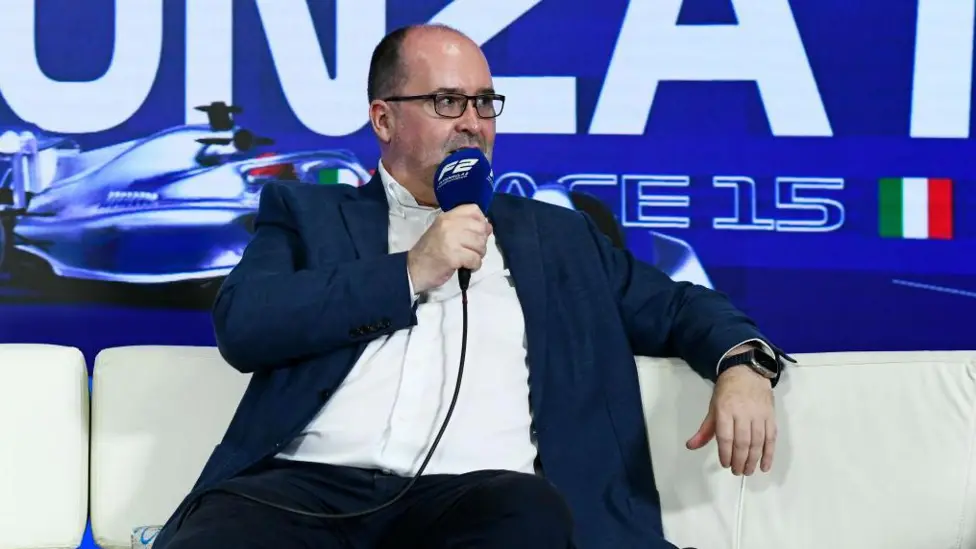
FIA Standards Breakdown at Heart of Robert Reid Resignation
Robert Reid steps down over ‘standards breakdown’ in FIA governance amid internal power struggles
In a dramatic shake-up that’s sent shockwaves through the motorsport world, Robert Reid, the FIA’s deputy president for sport, has stepped down, citing a “fundamental breakdown in governance standards” at the heart of the organization.
For a man who once stood side-by-side with FIA president Mohammed Ben Sulayem during his rise to power in 2021, Reid’s resignation feels less like an exit and more like a protest—a public call to arms against a system he says is no longer accountable to the very people it serves.
A resignation rooted in principle, not personality
Reid, a respected voice in global motorsport and a former co-driver in the World Rally Championship, didn’t mince words in his parting statement. “When I took on this role, it was to serve the FIA’s members, not to serve power,” he said. “Over time, I have witnessed a steady erosion of the principles we promised to uphold.”
According to Reid, the final straw was the FIA’s decision to bring the promotion of the World Rallycross Championship in-house—bypassing both the FIA Senate and the World Motor Sport Council. The move, he argues, not only violated due process but also could open the FIA up to legal risk under European Union competition law.
“This is not about personalities,” Reid emphasized. “It is about principles. Motorsport deserves leadership that is accountable, transparent, and member-driven. I can no longer, in good faith, remain part of a system that does not reflect those values.”
FIA’s internal turbulence and ‘concentration of power’
Reid’s resignation arrives on the heels of several internal controversies and power struggles that have dogged the FIA under Ben Sulayem’s leadership. At the most recent FIA General Assembly, changes were passed to the organization’s statutes that critics say consolidate power within the president’s office while diminishing the role of other governance bodies.
The restructuring has not gone unnoticed. MotorsportUK chairman David Richards penned an open letter calling the FIA’s direction a “shift of moral compass,” warning of growing concern among national federations and industry stakeholders.
With Reid now walking away from the second-most powerful role in the organization, those concerns are becoming harder to ignore.
From trusted ally to internal critic
Reid’s departure is particularly significant given his early support of Ben Sulayem during the 2021 election. Seen as a figure who could balance reform with stability, Reid brought with him a wealth of experience in rallying and a reputation for integrity.
But over time, cracks began to show. The growing dissonance between Reid and Ben Sulayem reportedly stems from how decisions are being made—or rather, who is being left out of them.
“Critical decisions are being made without due process or proper consultation,” Reid said, suggesting a pattern of unilateral action from the president’s office that bypasses the collaborative ethos expected at such a high level of global sport governance.
A growing list of controversies

Robert Reid: FIA deputy president for sport resigns over ‘breakdown in governance standards’
Reid’s exit doesn’t come in isolation—it’s part of a larger storm cloud that’s been forming over the FIA. Ben Sulayem’s presidency has faced scrutiny on multiple fronts:
-
Dismissal of senior staff: Several key figures have either resigned or been removed from their roles under mysterious circumstances, often followed by whispers about internal financial mismanagement.
-
Rule changes impacting F1: Sudden shifts in regulations and controversial public behaviour policies for F1 drivers have sparked friction between the FIA and the paddock.
-
Whistleblower allegations: Claims of interference in Formula 1 race decisions were recently dismissed by the FIA, but not without casting a long shadow over the president’s approach to impartiality.
-
Views on women: Ben Sulayem has faced backlash over past comments seen as dismissive of gender equality, a particularly sensitive issue given the FIA’s recent efforts to promote women in motorsport.
-
Legal challenges: The FIA is currently being sued by Susie Wolff, director of the F1 Academy and wife of Mercedes team boss Toto Wolff. The lawsuit follows a conflict of interest investigation into the couple that was launched and dropped within just 48 hours—a move many saw as damaging and poorly handled.
World Rallycross and a breach of trust
But it was the World Rallycross Championship decision that finally pushed Reid over the edge. Historically, the FIA has relied on external promoters for its major championships—a strategy designed to keep commercial interests separate from governance and ensure financial transparency.
By taking the series in-house without a strategic business plan or approval from the necessary bodies, Reid believes the FIA has not only broken its own commitments but has potentially exposed itself to legal liability.
It’s also in direct contradiction to a 2001 agreement with Formula 1 that promised the FIA would divest from commercial promotion to avoid conflicts of interest.
For Reid, that breach was unforgivable. “That was the final breakdown of trust,” he said.
Ben Sulayem up for re-election—but pressure mounts
Mohammed Ben Sulayem’s first term as FIA president concludes at the end of this year. Though he remains unopposed for now, sources close to the paddock say at least one challenger is quietly preparing a campaign.
Reid’s resignation may embolden that movement. With one of the most senior and respected voices in motorsport governance stepping away on principle, the optics for Ben Sulayem aren’t good.
Even if he does win a second term, the task of rebuilding trust across member organizations, national federations, and fans will be monumental.
A deeper question: Who governs the governors?
The drama unfolding at the FIA brings a much larger issue into focus—who keeps international sports bodies in check? In theory, the FIA exists to regulate motorsport fairly and equitably. But when internal watchdogs like Reid feel they can no longer uphold those values from within, it forces everyone to question the system’s integrity.
Motorsport is evolving rapidly, with growing commercial pressures, technological shifts, and the challenge of making the sport more inclusive and sustainable. At such a pivotal moment, leadership built on transparency and collaboration isn’t just preferable—it’s essential.
Final thoughts: A resignation that speaks volumes
Robert Reid’s departure may not grab headlines like a Grand Prix victory or a driver feud, but its significance runs deep. It’s a red flag, raised from within, about how the world’s most powerful motorsport organization is being run.
And whether you’re a casual fan, a team principal, or an FIA member, it’s a story that demands attention.
Because if the people tasked with upholding the rules no longer believe in the process—who will?

























































There are no comments yet. Be the first to comment!